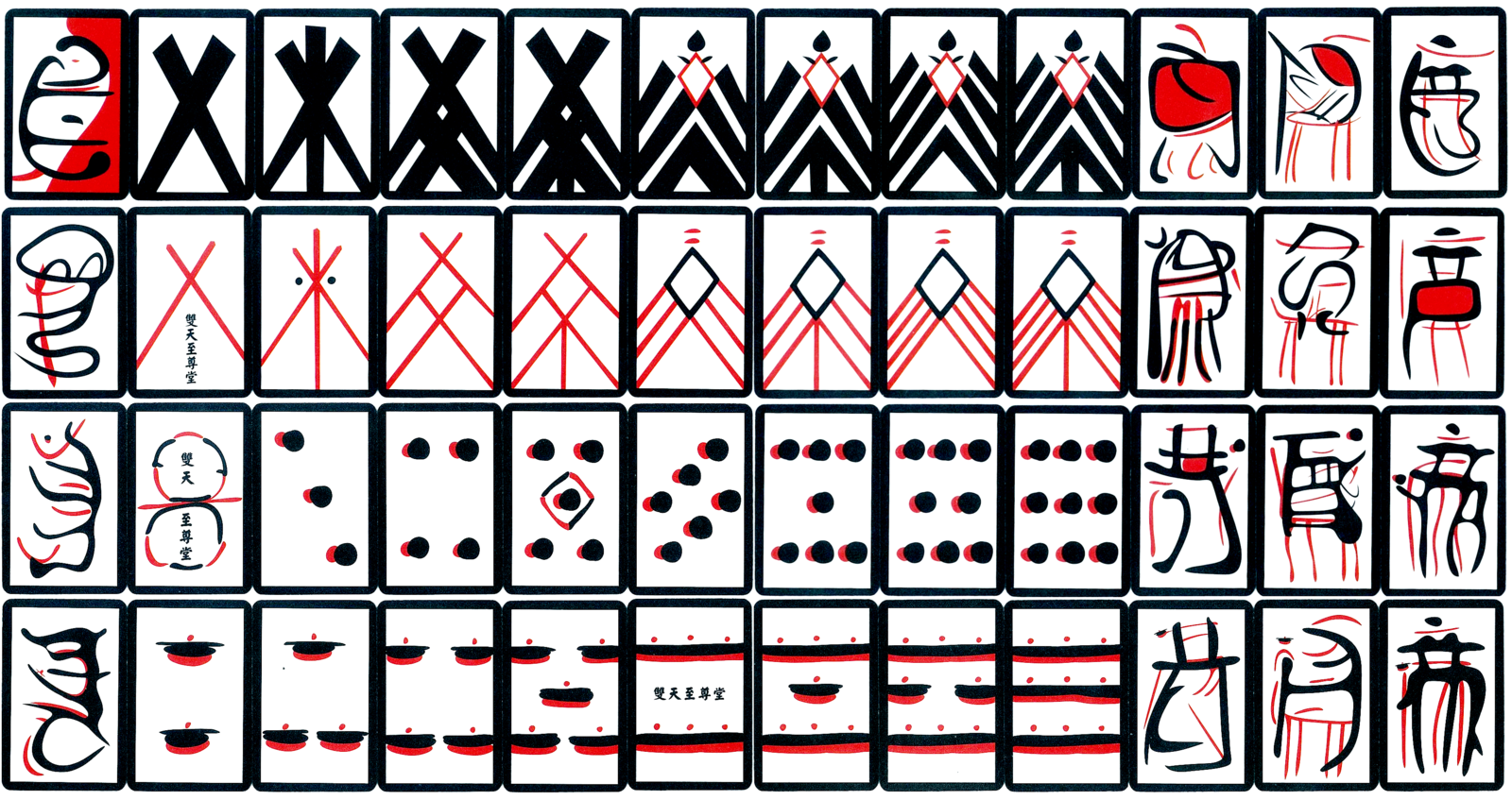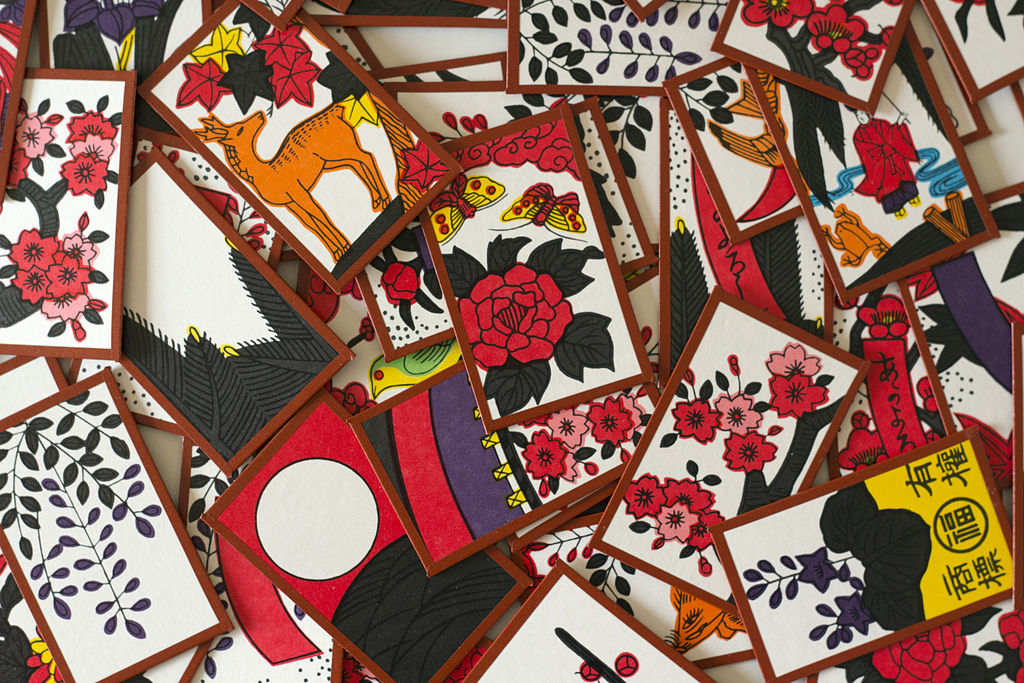the founding of nintendo
Sakoku. (鎖国, “closed country”) was the isolationist foreign policy of the Japanese Tokugawa shogunate (aka Bakufu[1]
In the mid-16th century, Portuguese traders introduced Spanish-style 48-card decks to Japan. Almost immediately, the Japanese started making their own decks, called karuta (derived from “carta”, card).
During sakoku, the western-style playing cards were banned, and so were the karuta. People liked playing cards, though. They’re portable and extremely versatile. A small item that can fit in your pocket and go with you anywhere, and holds within it the potential of any number of games.
Japanese manufacturers created new card types that concealed their Portuguese origins.

mekuri karuta. the Komatsufuda set.
These were banned too.
They gave it a few more tries: Karuta
The 19th century saw the creation of hanafuda (“flower card”) decks. Instead of 4 suits each with 12 cards, like the Portuguese decks (which had no 10s!), Hanafuda decks have 12 suits (12 months!) each with 4 cards. Once they got popular for gambling they were banned too, in 1816.

some hanafuda cards
aren’t they beautiful?
Sakoku ended in 1853 when the American kurofune (Black Ships) commanded by Matthew Perry arrived with guns and forced the Shogun to sign the “Treaty of Peace and Amity”. The UK signed the Anglo-Japanese Friendship Treaty at the end of 1854.
Five years later, Fusajirō Yamauchi (山内 房治郎, Yamauchi Fusajirō) was born! Fusajiro would grow up to be an artist and entrepreneur.
On 23 September 1889, Fusajiro opened a shop called Nintendo Koppai, selling hand-painted hanafuda cards crafted from the bark of mulberry and mitsu-mata trees. They were among the only cards it was legal to sell, and they got very popular very fast. Fusajiro had to hire some more artists to help keep up with demand.
When the cards became the favoured brand of the Yakuza, Fusajiro had to create a system for mass producing them. The gamblers opened a new deck for every game.
Once Western cards were legal again, Nintendo started making those too. Nintendo landed a deal with the tobacco monopoly JT to sell Nintendo cards in JT’s cigarette stores, and that’s when they really started making money.
- under which, for a period of 214 years, relations and trade between Japan and other countries were severely limited, nearly all foreign nationals were barred from entering Japan and common Japanese people were kept from leaving the country ↩︎